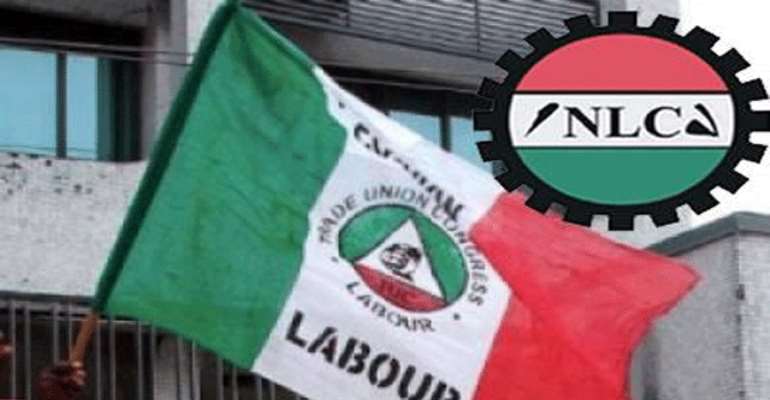NLC fumes over exclusion from input to Okunrunmu's report

The Nigeria Labour Congress said Thursday that the report of the Okunrunmu Committee on National Conference would be incomplete without the input of the organized labour.
The congress expressed dismay that the committee could overlook it, a broad based body representing the interest of millions.
According to the labour centre, the conference would be seriously injured by the committee's failure to consult with the organied labour and other critical sectors of the society.
The position of the NLC was contained in a statement by Joe Ajaero and Benson Upah,chairman and secretary respectively.
They said in the statement, 'Congress is dismayed that the Presidential Advisory Committee on National Dialogue under the chairmanship of Senator Femi Okunronmu has not yet thought it fit or necessary to consult the organised labour, a pan-Nigeria organisation with millions of membership and a critical stakeholder in the polity. We believe that the report of the Committee will not be complete without consultations with organised labour and other critical stakeholders. While its sojourn to thirteen zones may have availed it some information, this information will not take the Committee beyond the realms of previous conferences. In other words, this could be a leap of the toad.
'The sudden change in the disposition of the Federal Government on the convocation of National Conference has created doubts and divergent views within the polity on the actual motive for this Conference. 'The apprehensions which Government's decision on the subject has generated (are) understandable bearing in mind the timing, the near conclusion of 1999 Constitution review by National Assembly and the 2015 National and State Elections scheduled for May 2015. However, Congress recognizes the desirability for a National Conference to deliberate on lingering problems that continually threaten national cohesion, growth and development. Congress' acknowledgement of the need for a National Conference notwithstanding, we are of the opinion that the culture of constant dialogue by the constituent nationalities should be a feature of our national life. This is more so because, primordial sentiments are increasingly sustained by crises within the polity, inability of governance to impact positively on the citizenry and the slow development of industrial culture as a result of sustained deindustrialization. According to the NLC 'The call for a National Conference has legitimately persisted because the promise of independence; the commitment of the Federal structure (National and Regional) to build a welfare state and the consolidation of a true federalism have not been realized. 'These have been largely eroded by the military incursion into governance barely five years after independence and persisted for about thirty years. 'The 13 years of post military regime in Nigeria (1999 to date) are far reachingly influenced by: military culture in governance; military imposed-constitution and political institutions. Consequently, as a result of military aberration, virtually all institutions of governance as contained in the negotiated independence constitution have been substantially altered, while corruption, nepotism, destruction of our national psyche, culture of impunity have become the norm of our national life. 'This being the case, the proposed National Conference must address the question of where the country could have been in several respects if the military had not truncated the evolutionary growth and development of post independence Nigeria. '
Congress is dismayed that the Presidential Advisory Committee on National Dialogue under the chairmanship of Senator Femi Okunronmu has not yet thought it fit or necessary to consult the organised labour, a pan-Nigeria organisation with millions of membership and a critical stakeholder in the polity. We believe that the report of the Committee will not be complete without consultations with organised labour and other critical stakeholders. While its sojourn to thirteen zones may have availed it some information, this information will not take the Committee beyond the realms of previous conferences. In other words, this could be a leap of the toad.'
The congress made it clear that the success of the conference would be determined largely by proper focusing of the agenda.
The workers' body wants the conference to pay special attention to character of federating units (zones/regions); revenue formula (sharing and allocation of responsibilities); structure of police (federal/regional/zonal); system of government (presidential/parliamentary); resource management for national development; electoral reform; independence of anti-corruption agencies and the judiciary, among others.
